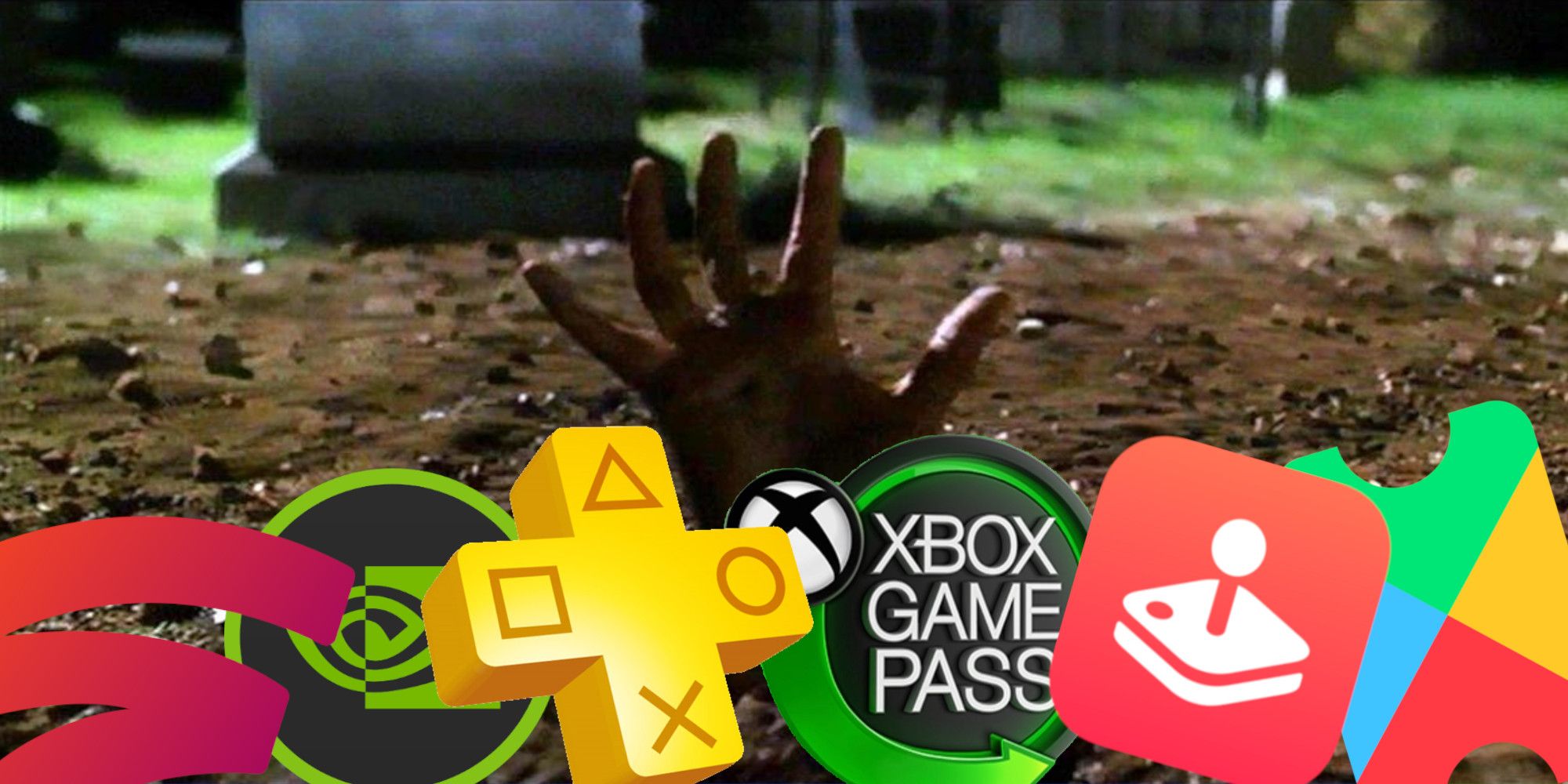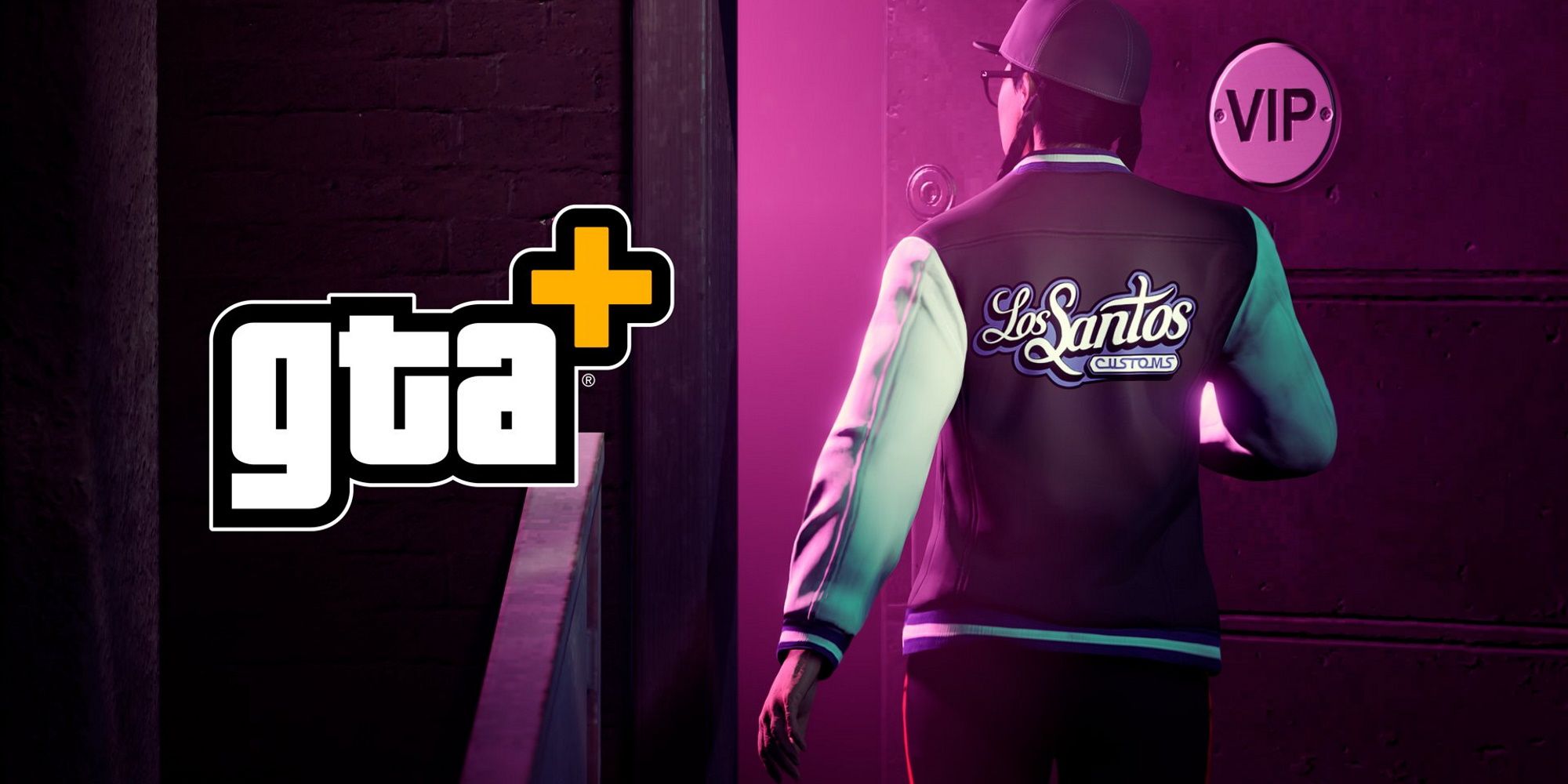With the news of GTA+ and the impending arrival of the new PlayStation Plus, my enthusiasm for game subscription services is quickly draining. The novelty and value of these memberships will soon be outweighed by the overwhelming cost of maintaining so many - if it hasn’t happened already. As a model, subscription services do have a lot to offer. But as competitors clamor for market share and the gaming landscape continues to morph around subscriptions, it’s easy to see how the value proposition will slowly but surely fall away in favor until players become pinned down by dozens of unavoidable, inescapable game subscriptions.
In the grand scheme of things, Sony’s rebranded PlayStation subscription is actually lagging pretty far behind the competition. Microsoft has developed Game Pass into a remarkable service over the last year, and even before that we already had similar subscription offerings from Ubisoft, EA, Nintendo Switch Online, and Humble Choice. Streaming via xCloud is the feature Game Pass truly pioneered, but despite being the most popular it certainly wasn’t the first. Stadia, GeForce Now, and Prime Gaming all launched before xCloud left beta. And of course, PlayStation Now has had a large selection of on-demand games for the last eight years. Despite being last to market in a lot of ways, Game Pass has been so dominant that it gives the appearance that others are just now catching up.
We’ll likely see a similar situation with GTA+, a new subscription service for Grand Theft Auto Online announced just last week. You might remember Fallout 1st, a Fallout 76 subscription that offers similar benefits to GTA+. And of course, MMOs like Final Fantasy 14 and World of Warcraft have charged monthly subscriptions for decades. But as one of the biggest games on the planet, Grand Theft Auto is going to turn a lot of heads with GTA+. It won’t be long before we see other publishers jump on the single-game subscription model for other big titles too. It’s a clear evolution of the season pass model, and publishers will push it as far as they can before players inevitably push back, just as they always have.
As for individual services, I don’t have any problem with Game Pass, GTA+, or PlayStation Plus. I’ve been subscribed to Game Pass since it launched on PC and have gotten a ton of value out of it. No single subscription is the problem; it’s all of them. They may appear to be direct competitors, but in reality these subscriptions are working together to reshape how we pay for and engage with video games. I’m not suggesting some kind of crackpot conspiracy theory here; we have clear examples from other forms of media that show exactly what happens when an industry completely shifts into subscription models. At first it looks like a great value, but eventually you find yourself paying more and watching, listening, or playing less than you did before.
Just think about how your relationship with Netflix has changed over the years. When Netflix first started streaming, there was nothing else like it. It had tons of content, it was relatively inexpensive, and it made watching on-demand content simple and enjoyable. This is the same position Game Pass held for games throughout 2021. Fast-forward to today, and Netflix is just one of a dozen different streaming services each with their own exclusive content and subscription fee. Much of what Hulu, Apple TV+, and Disney+ have to offer would have been consolidated on Netflix some five years ago. Today, you need to maintain multiple subscriptions for access, or manage deactivating and reactivating multiple accounts when they feature something you want to watch.
Anyone who has tried to watch Halo knows what I’m talking about. I don’t want a Paramount+ subscription, there’s nothing of interest to me on Paramount+, but if I just want to watch Halo, I have to subscribe. Paramount+ is hoping that I’ll find other things to watch once I’m signed up that will compel me to resubscribe. Alternatively, and perhaps more cynically, it’s hoping that I’ll forget I’m subscribed among my many other subscriptions, which to be honest is highly likely.
So far game subscriptions services haven’t really pushed for exclusive games, but there’s no reason to think that won’t change. Exclusives are the bread and butter of the game industry, so as the competition shifts away from hardware sales to subscription sales, it’s reasonable to assume that Microsoft, Sony, and everyone else will want to get exclusive games onto their platforms. In the future, you might subscribe to Game Pass for a month because it's the only way to play the new Gears of War game. Maybe you’ll find other games and stick with Game Pass the next month, or maybe you’ll just forget to unsubscribe.
There have been some signs of consolidation, which in this case could be a good thing. EA Play combined with Game Pass last year while Uplay threw in with Stadia. At the same time, Game Pass for PC had its price increased as it exited beta last September. I’m enjoying the benefits of these services today, but I’m wary of where things go from here.
Subscriptions have become a way of life. I have a subscription to my grocery store for deliveries and multiple subscriptions on Amazon for household items like cat litter and paper towels. My toothbrush and razors are separate subscriptions. Heck, my car insurance is a subscription. I have an Audible subscription I forget to use, and a Google Play Pass subscription I keep forgetting to cancel. I subscribe to Netflix, Hulu, Disney+, Apple TV+, Shudder, Paramount+, HBO Max, The Criterion Channel, Spotify, Game Pass, Stadia, Geforce Now, and soon, Spartacus. In another five years, that list will probably double. The last thing I need right now is more subscriptions, but there’s no doubt that’s exactly what we’re going to get.


